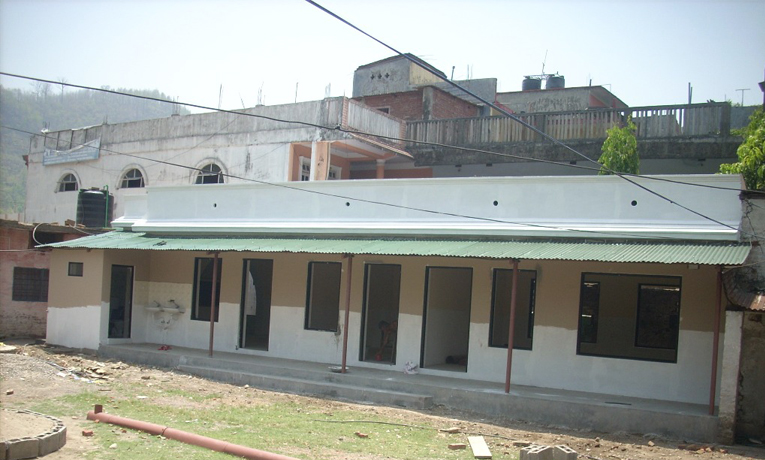A World Medical Mission doctor in Nepal confronts the challenges and trials of working in a developing nation fraught with illness and despair.
David Hough is a World Medical Mission doctor sent by Samaritan’s Purse to serve at Tansen Mission Hospital in Nepal. He and his family moved to Nepal during the fall of last year.
I have many feelings about working in the hospital that are hard for me to summarize. Working here has been my goal for so long. After four years of college, four years of medical school, three years of residency, and four months of language school, I’m finally where I want to be: working as a doctor in a hospital in the developing world.
Nepal is a country full of illness. Some of it is due to poverty, some self-abuse, and some seemingly really bad luck. Things have changed since Thomas Hale, the author of Don’t Let the Goats Eat the Loquat Trees, was here. But his perception of Nepal is still quite true. He felt that the hospitals here were like ambulances parked at the bottom of a cliff. When a person fell off, we could load them in and do our best to restore them to health. But the hospital does not keep people from falling off the cliff; it doesn’t fix the root problems of illness or prevent them.
Tansen Mission Hospital is not the only hospital in the area, but it is the best. The government hospital in the area rarely admits patients, and those who are admitted will often never see a doctor. A plethora of medications are given to treat possible diagnoses, and if a patient is not able to pay the bill, they will be sent away regardless of how ill they are.
Our hospital is not that way at all. In addition, Tansen Mission Hospital has won several awards in the last year, including “best hospital in Nepal.” As a result, patients will sometimes travel for days just to be seen. Of course, this can make follow-up a little tricky.
There have been highs and lows so far during my time at the hospital. I have experienced joy seeing patients I was sure were going to die do well, as well as sorrow from seeing patients who seemed fairly healthy pass away. The latter scenario was of one of the most disturbing cases I have seen so far.
The patient was a 29-year-old man who came in with abdominal pain and nausea. We placed him on antibiotics and anti-emetics. The following morning he had a seizure, which we all assumed was alcohol withdrawal. He responded well to the benzodiazepines we gave him to stop the seizure, and we moved on to the next patient.
The following morning, we found that the patient had another seizure. He never woke up and was dead by the afternoon. This left my head spinning. Was he truly in alcohol withdrawal, or was he having seizures because some of the medications we gave him lowered seizure threshold? Did he have a bleed in his brain during one of the seizures, or was he still having subclinical seizures after the second seizure? I will never know why that young man under my care passed away, and it freaked me out. What did I miss? What should I have done differently?
The motto of Tansen Mission Hospital is, “We treat, Jesus heals.” This is something I have to keep coming back to. We know from Scripture that Jesus had the ability to completely restore otherwise incurable people with only a few words, or a touch, or mixture of saliva and dirt. On the other hand, I have seen people with incredible faith waste away from illnesses that were treatable and they should have recovered from. God has given us sharp minds and incredible bodies that tend to function according to natural rules. This allows us doctors to diagnose illness and give medicines that generally help.
However, the power of all of this ultimately rests with God. If He wants to restore a person despite my misdiagnosis and poor management, that is within His power and right. It is also equally within His power and right to thwart world-class medical treatment. My role is only to show up, do my best, and then pray for my patients.





